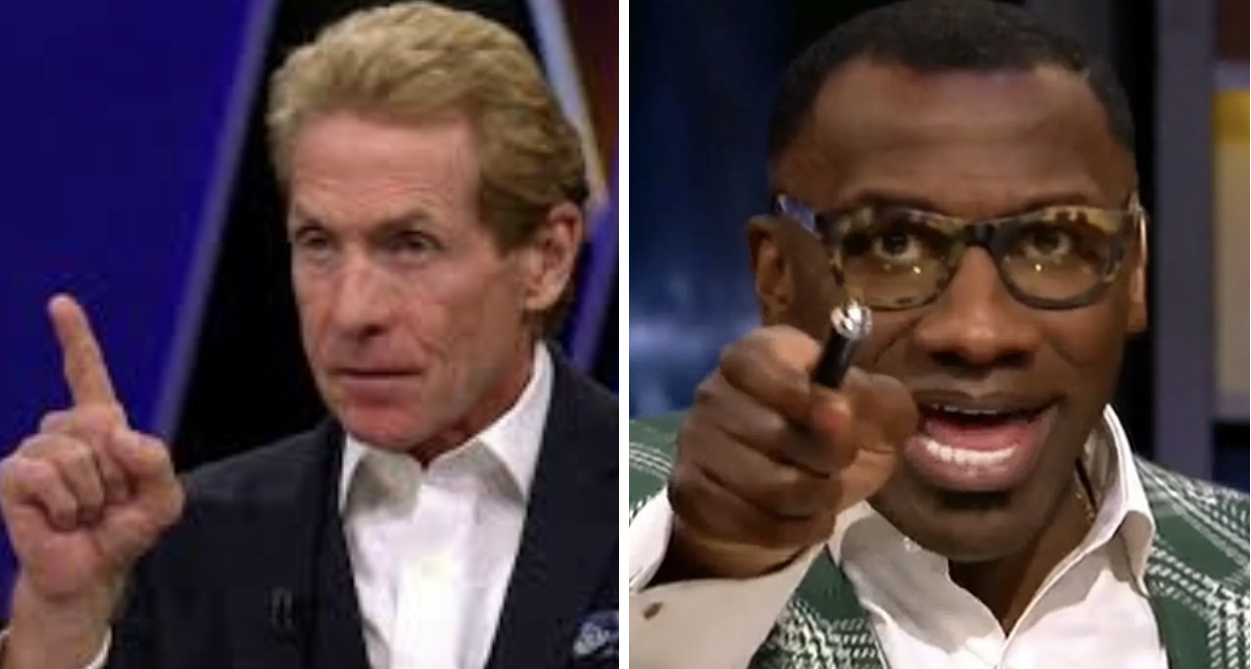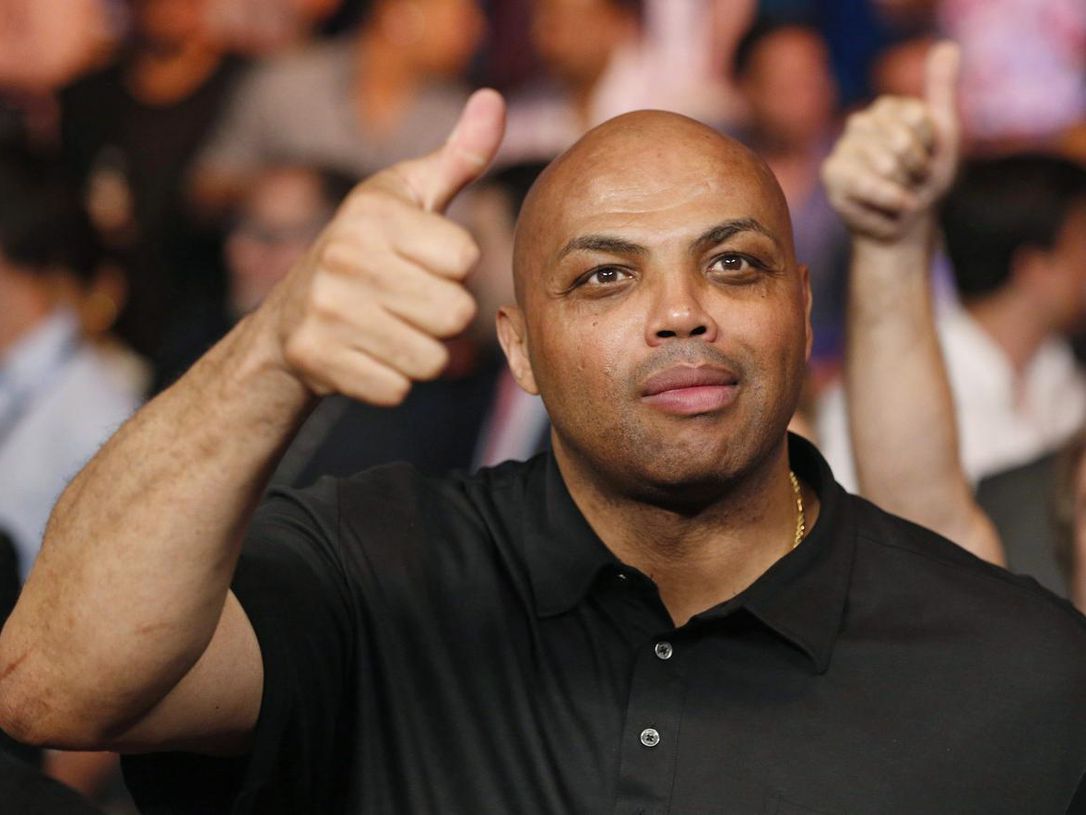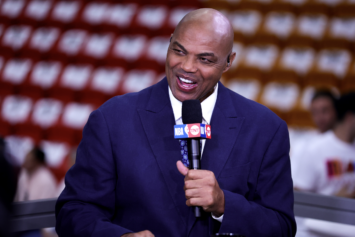Most of you know Cari Champion from her time at ESPN, as the face of some legendary projects, including the mediator for the original great debaters of First Take, Stephen A. Smith and Skip Bayless.
If she never accomplishes anything else in the business, she’s already recognized as a groundbreaker, envelope pusher and inspiration to thousands of women, aspiring reporters and multi-media members across the globe.
RELATED: What’s Next For Cari Champion?
Champion currently hosts the “NFL Next Live” Thursday Night Football live stream alongside former NFL wide receiver Andrew Hawkins and TNT’s studio show, “The Arena,” a new in-depth storytelling franchise created to provide a thought-provoking forum for content on topics occurring on and off the NBA court of play.
This week, Champion launched a new podcast, “Naked with Cari Champion,” where she will ask some of the greatest in sports and entertainment to remove the veil and get Naked. Being Naked on this podcast means describing life-altering circumstances and events that helped shape who you plan to become.
WATCH EPISODE 1 WITH FORMER NBA PLAYER/ACTIVIST STEPHEN JACKSON
Cari gained her fame, moderating sports brawls between men, before realizing that she has a lot more to say and offer beyond throwing topics to her male colleagues and setting the stage so they can shine.
Now, over a year removed from The Worldwide leader, The Shadow League caught up with Cari, who’s doing her own thing, staying authentic and taking over the sports, politics and culture media realm, one magnificent project at a time.
The Shadow League: How’d you come up with the concept “Naked with Cari Champion” for your new podcast?
Cari Champion: I have been trying to do this concept for a while with other opportunities I had, where I was able to talk to anybody about anything. At the beginning of the pandemic, this is one of the things that I thought was important for me.
The pandemic changed how everybody moved and interacted and thought about our future, our friends, our life.
In the process, I was able to really understand some hard truths and what was really important. And I know I wasn’t the only person who feels that way. There were so many stories I wanted to hear about like Dak Prescott’s story. He doesn’t share a lot about himself in a way that we can get the totality of his story because he’s worried about what people think, but in so many ways that’s what also makes him a great athlete
I really want to explore what makes people great and that’s usually the uncomfortable, not perfect, nasty stuff behind the scenes that really makes people better
Gambler: List the three character traits that have been key to your historic rise?
Cari: Being Prepared, Never Settling, Meeting The Challenges.
I think that’s one of the interesting commonalities about people who are ambitious: it’s never enough and they always want more or they can see more. And it’s not about fame, but they just want to be better and constantly pursue being better, being excellent, and putting their best foot forward
It’s corny and cliche, but I was just prepared. When opportunity meets preparedness you have all these wonderful options that come your way. I left ESPN with the goal of just doing what I love and return to something that I had walked away from for so long.
That was just basic interviewing and literally committing a few acts of journalism. Being curious and being interested in who people are and why the world works that way and giving a voice to those who don’t have a voice. That was my goal, to flex a different muscle and work on a new skill set. I didn’t want to become complacent and I was hungry to do more.
Also, I just like challenges. I embrace fear, I’m comfortable with unknowns. It may not be pretty at the beginning, but the ultimate goal at the end is to understand it and conquer that fear and find something new about yourself, who you’re interviewing and life.
Gambler: You made history as the first Black woman to host a late-night cable news and information show with your move to Vice TV for “Cari & Jemele: Stick to Sports.” How did that power move come about?
Cari: I left ESPN, someone called up Jemele and I asked if we wanted to do a show together and it just so happened that we had filmed a pilot six months earlier, in between all of the other things we had going on and it was destiny. We worked it out.
Tonight, political strategist @Angela_Rye and comedian @roywoodjr join @CariChampion and @JemeleHill to answer the question on everyone's minds: what in the actual fuck, America?
Tonight at 11:30p. #wontsticktosports pic.twitter.com/2ceCECc7f2
— VICE TV (@VICETV) January 7, 2021
Gambler: Speaking of Jemele “Juice” Hill… Together, you two have done things that no tandem of women in sports, pop culture or multimedia have accomplished. Talk about that relationship.
Cari Champion: I think that was one of the first times I ever got to work with a friend. People don’t get to work with their friends and when they do, it might not always work out. Sometimes things get uncomfortable. We both have an objective to have fun because whenever it starts feeling like work that you don’t want to do, you’re missing the point.
We show people that friends can work together. Two, intelligent Black women talking and having very comfortable, firm opinions on things that people don’t want to hear about is not unheard of. It was just untelevised. You have to let that side be known. We were the first, but we definitely won’t be the last.
Gambler: I know that’s right. Talk about the chemistry between you and Jemele and the obstacles you face getting your creative and cultural objectives across to the suits?
Cari: The key is, we both are journalists at our core and very curious about the world we live in and the summer of racial reckoning presented a wonderful platform for us to talk about what we always should be talking about. The pushback is just par for the course. If we were not doing it right and people aren’t responding, then we aren’t doing our jobs.
Gambler: You left ESPN in February of 2020 after years with the network. Discuss the trepidation or hesitation you felt not having the support of the machine, going out and basically betting on yourself. It’s obviously paying off. What was that conversation like with yourself?
Cari: I came to ESPN from the Tennis Channel in October of 2012. I spent almost a decade there. That’s where I grew up, that’s all I knew. As a sports professional, when I left the Tennis Channel (which was a single sports network) I felt that if I was going to do sports fully I should go to the place where they do it the best and that was ESPN.
I didn’t understand the gravity of the position when I got it. I didn’t understand any of the boundaries as far as being the first Black woman to host a show Mon-Friday with Skip and Stephen A. I was just focused on being great and doing the work.
Gambler: What changed?
Cari: Over time I fell out of love with certain things. Everything felt very formulaic to me and when people make decisions like this it’s not overnight. This had been on my heart every couple of years until my contract was up.
Here’s the good thing about life. Your journey changes, but your destination never does. At one point that was my journey… destination dream job. But it’s OK to move on and want something more fulfilling for yourself.
I had an opportunity to do the Titan Games show with the Rock and I had to do it in LA, but this time around when we were filming, I needed to take a month off and it wasn’t going to work. I said if I can’t do both I am going to do what I really want to do and dive into this entertainment, slash political, slash sports world
If the pandemic happened in November I never would have left ESPN because of the uncertainty and being captured in terror, not knowing what the world or economy would look like. But I’m so glad I didn’t know because it was the best thing I ever did.
I left in February and by April Jemele and I signed a deal. By June I was working for Turner, hosting “The Arena” and it was the perfect platform for athletes to talk about social justice and what they wanted. It was so timely based on what was going on with the NBA walkout in The Bubble, boycotts across sports in response to police killings, and systemic racism.
Then I got another opportunity. So, it is just a beautiful thing and that’s why I knew my steps were ordered. You don’t know how much people are inspired or moved by you or understand and appreciate the work you do until you are out of a “system.”
Gambler: How does podcasting fit into your overall career goals?
Cari: I’ve been thriving in more ways than one. I’m forcing myself to do something that I haven’t done in a long time and that I’m not necessarily always comfortable with or great at. In my first podcast with Stephen Jackson, we were doing tracks. I didn’t like the track. I was overly critical. I had to find a beat and a rhythm, just because I wasn’t doing this before.
Then the second episode was great and I was like OK here we go. Here’s my beat, there’s my rhythm, my honest authentic voice.
Real talk. So many of us stay in positions to be safe and we never get to fulfill what our dreams are.
That’s why I started my foundation “Brown Girls Dream” and I’m encouraging those young girls to go after their dream jobs and I’m helping all of these girls make these connections…but all the while I wasn’t pursuing my dreams to the fullest, so I just took my dream back.
This week’s new episode is with Freddie Gibbs – https://podcasts.apple.com/us/
We’ve all heard the saying, “No guts, no glory.” Well, Cari Champion lives by that motto and betting on herself is the only wager she’ll make. The Southern California native and UCLA graduate’s ability to exist comfortably embracing the uncomfortable and her dedication to opening doors for future generations have helped change the course of journalism for women of color.



